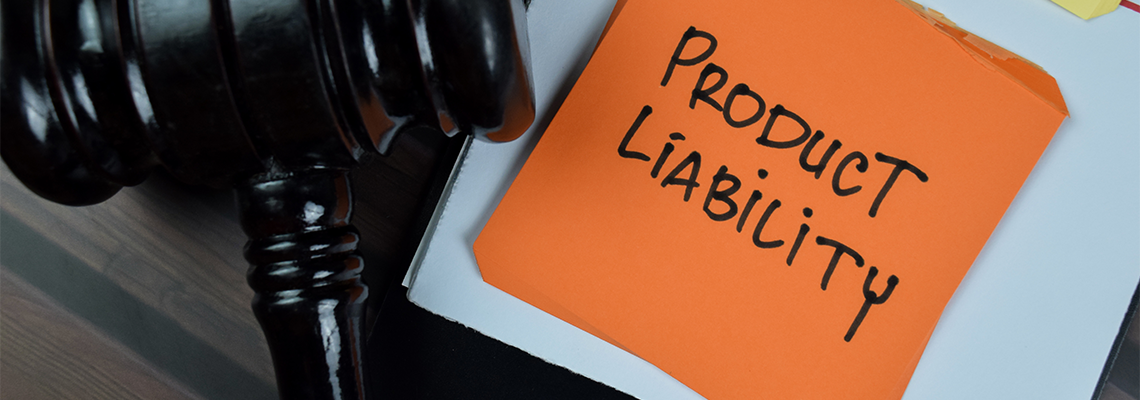Who’s Responsible When You Sustain an Injury Using a Product?

When you buy a product, you expect it to function safely and as advertised. Unfortunately, this isn’t always the case. Some products can be dangerous and cause severe injuries or even death. If you sustain an injury using a product, you must understand who is responsible and what legal recourse you may have.
Defining Product Liability
Product liability refers to the legal responsibility of manufacturers, distributors, suppliers, and retailers for any injuries their products cause. This area of law aims to protect consumers by holding these parties accountable for releasing defective or dangerous products into the market.
In many jurisdictions, product liability laws allow for claims based on negligence, strict liability, or breach of warranty. Consumers who suffer harm due to product defects may be entitled to compensation for medical expenses, lost wages, and other damages.
Types of Product Defects
To determine liability, you must first identify the type of defect that caused the injury. Here are the main types of product defects:
Design Defects
These defects occur in the product design phase. Even if manufactured correctly, the product remains inherently dangerous. An example is a car model prone to flipping over during sharp turns.
Manufacturing Defects
Manufacturing defects happen during the construction or production of the item. These flaws make an otherwise safe design dangerous. For instance, a batch of medication contaminated with harmful substances would fall under this category.
Marketing Defects
Also known as “failure to warn,” these defects occur when the manufacturer fails to provide adequate instructions, warnings, or labeling about the product's proper use or potential dangers. A common example is a medication that does not list possible side effects.
Packaging Defects
Packaging defects occur when a product's container or packaging fails to protect its contents or poses risks to users. For example, packaging for a children's toy that can easily be opened by a child might not provide sufficient protection, leading to injury.
Software Defects
In the digital world, defects in software that controls or contributes to a product’s functionality can also cause harm. For instance, a smartphone app that malfunctions and causes the device to overheat poses a risk to users.
Determining Responsibility
Several parties can be held responsible for a product-related injury:
Manufacturers
If a product is defective, the entity that designs and produces it can be held liable. This includes large corporations and small businesses that manufacture the product. Due to their direct role in creating the product, manufacturers are often the first point of scrutiny in a product liability case.
Distributors
Companies that distribute the product to retailers can also be held responsible if they fail to identify and address a defect. Distributors have a duty to ensure that the products they circulate meet safety standards and do not pose risks to consumers.
Retailers
Retailers who sell the product to consumers can be held accountable, especially if they are aware of the defect and continue to sell the item. They must also ensure that the products are adequately labeled and that any warnings are clearly communicated to the consumer.
Suppliers
Suppliers of components used in the final product can be liable if their part contributed to the defect. They must ensure that each component meets safety and quality standards to prevent any potential harm to consumers.
Licensors
Entities that license the use of their brand or design to manufacturers may be held accountable if the defect arises from the licensed aspect or compromises the product's safety. Licensors must maintain rigorous oversight of how their brand or design is implemented to prevent any compromises in product safety.
Industrial Designers
Professional designers who design products might also share liability if the defect is traced back to flaws or oversights in the design process. Their responsibility is to ensure that their designs are safe and functional to minimize risks to consumers.
Do This if You’re Injured by a Product
If you sustain an injury from a defective product, this is what you can do to protect your rights and build a strong case:
Seek medical attention: Your health and safety should be the priority. Seek immediate medical care for your injuries and retain all medical records related to the injury.
Preserve the product: Keep the defective product in a safe place. Do not attempt to repair it, as it will serve as critical evidence in your case.
Document everything: Take photos of your injuries, the defective product, and the accident scene. Keep all receipts, packaging, and related documents.
Consult an attorney: An experienced product liability attorney can help you understand your rights and guide you through the legal process.
Report the incident: Notify the manufacturer, distributor, or retailer about the injury and defect. Provide them with the details of the incident and retain copies of all correspondence. This can help establish a record of your claim and prompt an investigation or recall if necessary.
Avoid social media: Refrain from discussing the incident or your injuries on social media platforms. Public posts can be used against you in legal proceedings. You must keep the details of your case confidential until you have consulted with your attorney.
Georgia Laws on Product Liability
In Georgia, product liability claims must be filed within a specific timeframe, known as the statute of limitations. Typically, you have two years from the date of injury to file a lawsuit.
Georgia follows the “strict liability” doctrine, meaning you do not have to prove negligence. Instead, you must show:
The product was defective.
The defect caused your injury.
You were using the product as intended.
Georgia also adheres to the statute of repose, which bars any claims for product liability if the product has been on the market for more than ten years, regardless of when the injury occurred.
In Georgia, punitive damages may be awarded if it is proven that the manufacturer knowingly released a dangerously defective product.
Enlist Legal Guidance
Attorney Todd A. Harding stands out as a formidable legal advocate. He was selected as a Rising Star in 2016 and named among the 10 Best Client Satisfaction Criminal Law Attorneys that same year. In 2022, he was honored as one of the Top 100 Criminal Defense Attorneys.
Trusted by hundreds of clients since 2006, Attorney Todd A. Harding's approach is meticulous and strategic. His deep understanding of the law, attention to detail, and talent for crafting resolutions make him an invaluable asset for those facing legal challenges in Georgia.
If you're thinking of filing a product liability claim in Griffin, Spalding County, Butts County, Monroe County, Lamar County, or Henry County, call The Harding Law Firm, LLC for legal advice and support.

